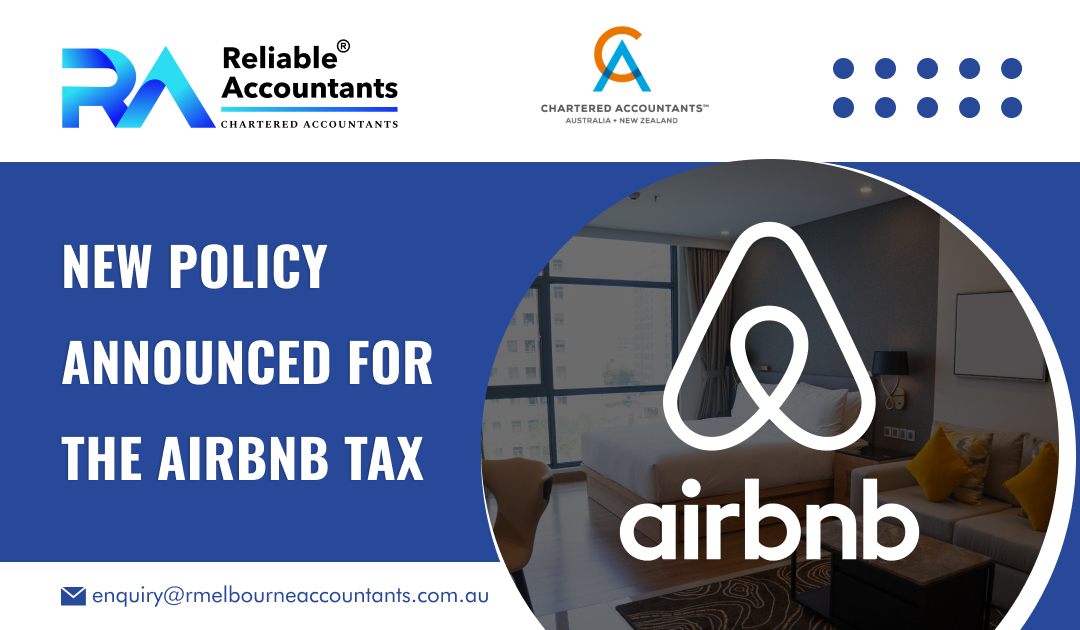Property investors who choose to use their property for short-term stays or leave it vacant are under the supervision of the regulators. The Victorian Government’s recent Housing Statement declared Australia’s first short-stay property tax. The additional tax will come into effect from 1 January 2025 and is expected to produce $70 million-plus annually. The short-stay levy will be set at 7.5% of the short-stay accommodation platforms’ revenue – thus a few days in Melbourne at $850 will cost an additional $63.75 will result in $913.75.
As per the statement, there are over 36,000 short-stay accommodation places with nearly half of these in regional Victoria. Over 29,000 of those places are entire homes. Airbnb’s ANZ Country Manager Susan Wheeldon says that less than 1% of the total housing stock is made up of short-term rentals in Victoria. Acute housing issues resided long before the founding of Airbnb, and targeting these properties can’t be considered a long-term solution.
Property investors are now supported for an onslaught of the same taxes at either the local government or state government. For Victorian investment property owners, this exists after a temporary land tax surcharge from the 2024 land tax year and for those leaving a property vacant, an increase to the absentee owner surcharge cost to 4% from 2% including a reduction in the tax-free threshold to $50,000 from $300,000 (for non-trust absentee owners).
Some local government taxes on Airbnb-style accommodation will be eliminated after the new tax comes into effect. Some councils already apply a surcharge on short-stay accommodation. For example, Brisbane City Council applied a 50% rate surcharge on properties listed for short-term rental for over 60 days a year in their 2022-23 budget, only to maximise it to 65% in 2023-24.
What Happens Overseas?
On an international level, bed taxes in some form are not uncommon but it is unusual to keep it separate form of tourist accommodation from another as the Victorian Government has decided to do. Also, unusual is the 7.5% rate – many local taxes on short-stay accommodation are in the 5% range. In British Columbia, the Underused Housing Tax – a 1% tax on the ownership of underused or vacant housing introduced from January 1, 2022 – has been credited with increasing the rental stock by up to 20,000 properties.
New York came up with new rules in September 2023 while taking the alternative route to free up rental stock that restricts Airbnb-style accommodation options. Hosts are required to register with the city if they provide accommodation for under 30 consecutive days. With the new rules, the host needs to reside in the property permanently – entire properties will not be available – and, only two guests are permitted. The platforms can monitor and compliance with the new rules.
New York is not alone in controlling the rise of short-term rentals. San Francisco, Paris, and Amsterdam limit the number of days in a year an entire residence can be listed – between 30 & 90 days.
Do Restrictions on Airbnb Create Rental Stock?
As per Professor Nicole Gurran, from the University of Sydney’s School of Architecture, Design and Planning, if Australia really wants to control short-term rentals to solve the long-term rental crisis of Australia, then more is required to be done. As compared to most of the global regulation of the short-term rental market, Australia is extremely ‘light touch’. The overall goal is to promote the tourist economy.
While this might be right 5 years ago when the rental market was in better condition and long-term housing needs focused on inner city areas, the current crisis needs a new approach. Regulations need to be customised to the conditions of local housing markets, instead of the one-size-fits-all approach that is used today, Professor Gurran says.
In a 2017 study, Professor Peter Phibbus and Professor Gurran found that Airbnb used 7% of stock in one Sydney municipality. So, where is all this going? It is likely that governments will take advantage of the lucrative short-term rental market, but the specific regulations will depend on the individual states and territories. These regulations will aim to prevent private gain from short-term rentals at the expense of long-term accommodation supply.
30% Tax on Super Earnings Above $3m
Recently, the Treasury released draft legislation that will increase the tax rate on superannuation balances above $3 million from 15% to 30% starting from July 1, 2025. This is the final step before the legislation is introduced into Parliament and becomes a reality. The draft legislation has not changed much from the Government’s original announcement.
The proposed calculation for the tax rate aims to capture the growth in the total super balance over the financial year, including contributions and withdrawals. This calculation method considers both realised and unrealised gains and allows negative earnings to be carried forward and offset against future years.
The ATO will calculate the tax on earnings. TSBs over $3m will be examined for the first time on 30 June 2026 with the first notice of assessment expected to be sent to those affected in the 2026-27 financial year. From a planning standpoint, those with superannuation balances near to or beyond $3 million should investigate the implications for their position – there is no one-size-fits-all solution here, and what is appropriate for you will depend on your situation. Even with the additional tax, superannuation remains a tax-efficient vehicle.

